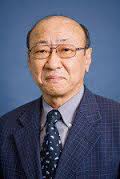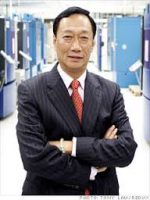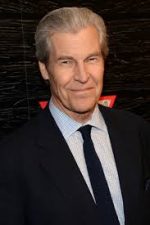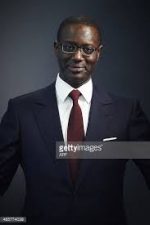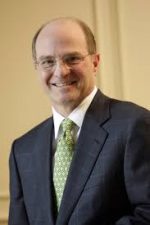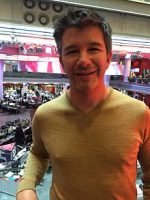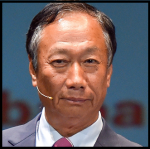Tatsumi Kimishima (born April 21, 1950 in Tokyo) is the fifth and current president of Nintendo. He was formerly the president of Nintendo of America from January 2002, succeeding Minoru Arakawa, until Reggie Fils-Aimé took his place in May 2006. He was promoted to Managing Director of Nintendo on April 2013. On September 16, 2015, he was named the fifth President of Nintendo, succeeding Satoru Iwata, who died in July 2015.
Employment:
Sanwa Bank:
Kimishima worked for 27 years for Sanwa Bank. Kimishima dealt with corporate planning, international business development, corporate communications and promotions.
During his 27-year tenure at Sanwa Bank, Kimishima was posted in New York, New York, USA; Los Angeles, California, USA; San Francisco, California, USA; Central America; and the Caribbean.
Nintendo:
The Pokémon Company:
Kimishima was The Pokémon Company's Chief Financial Officer. He was appointed in 2000.
Pokémon USA Inc.:
In 2001, Kimishima was appointed president of Pokémon USA Inc.
Pokémon games:
During Kimishima's time working at Pokémon USA Inc. from 2000 to 2002 there was a release of popular Pokémon games that found their ways onto the market and into the homes of consumers. On October 15, 2000 in North America Pokémon Gold and Silver were both released on the Game Boy Color. The Pokémon game known as Pokémon Crystal was released on July 29, 2001 also for the Game Boy Color.
Nintendo's shuffling of executive staff;
After the release of the GameCube in 2001, President of Nintendo since 1949, Hiroshi Yamauchi felt that it was the right time to step down from his position.[9] His son-in-law, Minoru Arakawa, took over the role as President of Nintendo in America but retired only one year later in 2002. Nintendo, after the release of the GameCube, found themselves in third place to Sony's PlayStation 2 and Microsoft's Xbox in relation to sales. Some would even consider the introduction of this new gaming platform as a failure, especially when compared to Nintendo's dominance in the late 80's and early 90's. Yamauchi appointed Tatsumi Kimishima to become President of Nintendo of America in 2002. He was previously working as the head of Nintendo's Pokémon division. Four years after Kimishima's promotion he was promoted again, but this time to the position of Chief Executive Officer and Chairman of the Board. Kimishima still watches over the management of Nintendo of America to ensure continued success of the company. He serves as President of Nintendo Co., LTD.
Time at Nintendo (2002–present):
After the GameCube's release it was a struggle for Nintendo to create something new and innovative. Many gamers were worried about Nintendo slipping, thinking that the company now only made games for children excluding the hard core gamers that the company had possessed once before. However, this negative attitude didn't stop the company and under Kimishima's leadership Nintendo achieved great success after the release of the Wii in November 2006. The company was gearing up for the holiday shopping season and the Wii was quickly sold out around the world. As of September 2012, the Wii had put Nintendo back on top in the video game world due to total units sold amounting to 97.18 million. At this time, PlayStation 3 and Xbox 360 possessed similar sales of 70 millions units sold. Under Kimishima's leadership the company was able to relive the success that it had in the late 80s and early 90s. In April 2013, he was promoted to Managing Director of Nintendo Co., Ltd., and Satoru Iwata took his place as CEO of Nintendo of America. On September 16, 2015, after the death of Iwata in July 2015, Kimishima was named President of Nintendo. On May 15, 2016, Kimishima announced that Nintendo are going to start their own film production and are looking for filmmakers for their projects.
Guo Tai-ming, also known as Terry Guo,(born October 8, 1950) is a Taiwanese tycoon who is the founder and chairman of Foxconn, a company that manufactures electronics on contract for other companies such as Apple Inc. It is the largest such electronics manufacturing services company in the world, with factories in several countries, mostly in mainland China, where it employs 1.2 million people and is its largest exporter.
Early life:
Guo was born in Banqiao Township, Taipei County (now Banqiao District, New Taipei). His parents lived in mainland China's Shanxi Province before they fled to Taiwan in 1949, where Guo was born. His father had worked as a policeman in the past. As the first child of his family, Guo received education from elementary school to post college. After graduation, he continued to work in a rubber factory, working at a grinding wheel, and medicine plant until the age of 24. Guo has two younger brothers, Tai-Chiang Guo and Tai-Cheng Guo, who have both become successful businessmen as well.
Founding of Hon Hai:
Guo founded Hon Hai in Taiwan in 1974 with $7500 in startup money and ten elderly workers, making plastic parts for television sets in a rented shed in Tucheng, a suburb of Taipei. A turning point came in 1980 when he received an order from Atari to make the console joystick. He further expanded his business in the 1980s by embarking on an 11-month trip across the US in search of customers. As an aggressive salesman, Guo broke in uninvited into many companies and was able to get additional orders, despite having security called on him multiple times.
Terrence James Lundgren is an American department store executive and is the CEO, Chairman of the Board, President, and Director at Macy's, Inc., the parent company of Macy's and Bloomingdale's department stores.
Career:
Through his career at Federated/Macy's, Lundgren is credited with being an innovator in merchandising, branding and localization. He was instrumental in developing the company's private brands of merchandise and led the 2005 merger of Federated Department Stores, Inc. and May Department Stores, Inc., creating one of the largest retailers in the world, with more than 800 U.S. stores and 2008 net sales of US$24.9 billion.
Like all retailers, Macy's, Inc. saw declining sales in 2008 amid deterioration of the U.S. economy. In fiscal 2008 (through January 2009), same-store sales declined by 4.6% at Macy's, Inc. In this environment, however, Macy's, Inc. has outperformed virtually every major competitor.
Macy's is seeing positive early results from "My Macy's", a localization initiative launched by Lundgren in spring 2008 to tailor a portion of every store's assortment to local tastes and color. The company reported that of its top 15 best-performing geographic markets in the key holiday selling month of December 2008, 13 were My Macy's pilot districts. The My Macy's organizational model is being rolled out across the U.S. in 2009.
As reported in Macy's, Inc.'s proxy statement filed in April 2009, Lundgren's total compensation in 2008 declined by 37% to $5.4 million, reflecting lower sales and profitability in a weak economy. His compensation included $1.5 million in salary, $900,000 under the non-equity incentive plan, and $496,423 in various other compensation. The remainder was the value of stock options.
Lundgren's salary and the composition of the Macy's Board of Directors was cited by Republican presidential candidate Donald Trump as an example of an overcompensated Chief Executive Officer. In a September 2015 television interview, Trump stated that the high salaries paid to CEOs was often a "joke" and a "disgrace", Trump cited Macy's, Inc. as an example.
Lundgren has been awarded numerous honors. In 2008, he received the Gold Medal Award from the National Retail Federation,[4] considered the retailing industry's pre-eminent honor. In spring 2008, he was presented with Carnegie Hall's third annual Medal of Excellence for outstanding philanthropic leadership in the arts. The gala held in Lundgren's honor raised $4.2 million for Carnegie Hall. Lundgren is very active in the community; he has been appointed Commissioner on Women's Economic Development by the Mayor of New York. Also, on behalf of NYC Mayor Michael R. Bloomberg he served as one of the industry chairs of Fashion.NYC.2020, which looked at the future of NYC's fashion industry and made recommendations for actionable steps the NYC government could take to promote NYC's fashion industry
He has been presented with several business recognition awards and has served as dinner chairman or as honoree for numerous retail industry organizations and charities, including the Fresh Air Fund, American Jewish Council, Breast Cancer Awareness, NOW Legal Defense, Parsons School and the Ovarian Cancer Society. Lundgren currently serves on the boards of Carnegie Hall, The New York City Partnership and United Way of New York City, as well as participating in numerous other charitable and civic efforts.
Lundgren currently is chairman of the National Minority Supplier Development Council. He also serves on the membership committee of the Economic Club of New York and is involved with the New York City Principal for a Day Program.
Personal life:
Born in Long Beach, California, Lundgren was one of six children. After graduating college, he joined Federated and rose quickly to lead the upscale specialty Bullocks Wilshire division in Los Angeles at age 35. Lundgren was married to Nancy Cross until their divorce; he has two daughters from this marriage. Lundgren married Tina Stephan in 2006.
Lundgren is also the namesake of the Terry J. Lundgren Center for Retailing at the University of Arizona, where he is also an alumnus, having graduated in 1974 with a bachelor's degree/B.A. In 2000, Lundgren was awarded the Honorary Doctor of Laws degree and delivered the university's commencement address.
Professional history:
Federated Department Stores: Bullock's division, 1975–1987
Bullocks Wilshire: 1987–1988, President
Neiman Marcus: 1988–1994, EVP, then Chairman/CEO
Federated Merchandising Group: 1994-1997, Chairman/CEO
Macy's, Inc. (called Federated Department Stores, Inc. prior to June 1, (2007):
1997–2003 President and Chief Merchandising Officer
2003–2004 President and Chief Operating Officer
2004–present Chairman, President and CEO.
He was a German businessman who co-founded the Aldi grocery store chain with his brother Karl. Theo was in charge of Aldi Nord, or Aldi North, and its counterpart in the United States called Trader Joe’s. Karl, on the other hand, handled Aldi Sur, or Aldi South. He passed away in July 2010.
Tidjane Thiam (born 29 July 1962) is an Ivorian businessman and former politician who became the Chief Executive of Credit Suisse in June 2015. Born in Côte d'Ivoire, he holds dual Ivorian and French citizenship. He studied advanced mathematics and physics in France before joining the management consultants McKinsey & Company in 1986, where he worked until 1994.
From 1994 to 1999 he worked in Côte d'Ivoire first as Chief Executive of the National Bureau for Technical Studies (BNETD), reporting directly to the Prime Minister and the President, and from 1998 as both Chairman of the BNETD and Minister of Planning and Development. Following the Ivorian coup of 1999, he resumed a private sector career and rejoined McKinsey in Paris from 2000 to 2002, then worked as a senior executive for Aviva before being recruited by Prudential plc. When appointed the chief executive of Prudential in 2009, he became the first black person to lead a FTSE 100 company.
On 10 March 2015, it was announced that Thiam would leave Prudential to become the next CEO of Credit Suisse, succeeding Brady Dougan.
Government:
In December 1993, the first Ivorian President, Félix Houphouët-Boigny, died and was replaced by Henri Konan Bédié. In April 1994, at the request of the new President, Thiam left France and McKinsey to go back to Abidjan and become the CEO of the National Bureau for Technical Studies and Development (BNETD), an infrastructure development and economic advisory body with more than 4,000 staff, reporting directly to the President and the Prime Minister. In that role, which had cabinet rank, he was also handling key negotiations with the International Monetary Fund and the World Bank. Thiam was also a key member of the Privatization Committee, in charge of privatising extensive state-owned assets.
In August 1998, in addition to his role at the BNETD, where he became chairman, Thiam formally joined the cabinet and was appointed Minister of Planning and Development. In his years in Côte d'Ivoire, Thiam promoted private sector involvement in infrastructure development. He implemented flagship projects including the Azito power plant (nominated by the Financial Times as one of the boldest successful investment decisions in the world, the renovation of Abidjan airport and the construction of the Riviera Marcory toll bridge, whose financing was closed a few days before the 1999 coup. One of the first actions of the new President, Alassane Ouattara, in 2011 was to start the construction of that bridge as originally overseen by Thiam, with the same promoters.
Thiam actively promoted an extensive privatisation programme which saw, between 1994 and 1999, Côte d'Ivoire lead African countries by privatising its telephone, services, electric power generation, airports, railways and many companies in the agricultural sector.
In 1998, the World Economic Forum in Davos named him as one of the annual 100 Global Leaders for Tomorrow, and in 1999 the Forum named him a member of the Dream Cabinet.
In December 1999, whilst Thiam was abroad, the Ivorian military seized control of the government. Thiam returned to the country, where he was arrested and held for several weeks. General Guéï, the new head of state, offered him the position of chief of staff, but he declined and left the country in early 2000.
CEO of Prudential:
Thiam left Aviva in September 2007 to become chief financial officer of Prudential plc. In March 2009, Thiam was named chief executive, effective from October, after Mark Tucker chose to step down. The appointment made him the first African to lead a FTSE 100 listed company. His departure from the role was announced on 10 March 2015.
After he became chief executive, Prudential launched a bid for AIA, the Asian wing of the crisis-stricken AIG. A public battle ensued, with some investors complaining about the $35.5 billion price Prudential was offering to pay. The bid eventually failed, after the AIG board rejected a revised lower bid. AIA was later floated on the Hong Kong Stock Exchange, and the value of the company quickly rose above Prudential’s original bid price.
Thiam came under strong personal criticism following the failure of the bid, partly as a result of the costs incurred by the company in pursuing the bid.[19] However, he was re-elected as CEO at the May 2011 AGM with a 99.3 per cent vote. The company's performance since the bid appears not to have been damaged by its failure - in the first nine months of 2011, Prudential delivered a 14 per cent increase in new business profits over the same period in 2010, with total insurance sales increasing by 10 per cent, while in its full-year results for 2013, Prudential delivered an IFRS operating profit of £2.95 billion, up 17 per cent from the year before.
In March 2013, the Financial Services Authority fined the Prudential £30m and censured its CEO, Thiam, for failure to inform it of its plans to buy AIA and failure of dealing with the FSA in an open and cooperative manner.
Tom L. Ward is a prominent Oklahoma City businessman and philanthropist. He is currently the Chairman and CEO of Tapstone Energy, a privately owned energy company in Oklahoma City. He is the founder and former Chairman and CEO of SandRidge Energy, Inc. and is the former President, Chief Operating Officer and co-founder of Chesapeake Energy.
In 2013, Ward was ousted from his position as CEO of SandRidge Energy after accusations surfaced of Ward profiting from "self-dealing" in a series of transactions in which companies and trusts owned and controlled by his family have bought land and then sold it to SandRidge at a mark-up. After thorough investigation, "nothing improper and no wrongdoings" were uncovered.Ward's ouster from SandRidge resulted in a one-time severance payment of $90.9 million due to Ward in spite of the company's performance during his tenure. Since Ward's departure, SandRidge performance has dropped over 90%,.
Philanthropy and Community Involvement:
Ward co-founded White Fields in 2000 and serves as the Chairman of the Board. White Fields' mission is to provide a continuum model of care offering a long-term home for abused and neglected boys. They strive to meet the physical, emotional, educational and spiritual needs of these boys by giving them a long-term home, counseling and guidance.
Ward was a member of the Professional Basketball Club LLC, which owns the NBA's Oklahoma City Thunder, until he sold his interest to George Kaiser in April 2014.
Ward is a committed member of several education-affiliated organizations. He is a former Board of Trustees member for Anderson University in Indiana, is a member of the Economic Advisory Council of the Federal Reserve Bank of Kansas City, and participates on the Board of Visitors for the OU Health Sciences Center. He is also on the board of the Department of Medicine, the Board of Trustees for The World Golf Foundation, and a member of The First Tee, which is an organization developed to help “shape the lives of kids and teens from all walks of life by introducing them to values inherent in the game of golf”. Ward also contributes as a member of the Nopetro Board of Directors.
Ward has provided substantial scholarship money to Oklahoma colleges and universities to help students achieve their higher education goals and find work in the state after college. Ward played a major role in revitalizing downtown’s Central Business District. Ward oversaw the renovation of the former Kerr-McGee Tower into SandRidge’s corporate headquarters, which is now known as SandRidge Commons. Ward is notable in restoring rundown buildings, such as Oklahoma City’s historical Braniff Building, by adding retail, contemporary office space, and restaurants. Ward also directed 120 Kerr from a "dilapidated parking structure," to a modern office building.
In 2014, Ward invested $17 million dollars into the 96-year-old vacant Mideke building in Bricktown, in downtown Oklahoma City, to reestablish it as Tapstone’s headquarters. Renovations include the east alley wall of the warehouse being modified with a “transparent glass façade,” and a partial revamp of the interior by integrating existing historical architectural elements into the new design. Additional renovations include a 3,600 square feet expansion for an All About Chai Coffee and Tea.
Ward was highly active in sponsoring major downtown activities in December 2014, such as the SandRidge Tree Lighting Festival and SandRidge Santa Run. Ward and SandRidge also worked intently with Alva’s minimum security Bill Johnson Correctional Center located in Oklahoma. “Through the partnership, rehabilitation, non-violent inmates earn the opportunity to return back to the workplace”.
In 2005, Ward provided a free campus for SeeWorth Academy with an ideal location. Distant enough from the city, 400 students were finally able to gain “balance from the curriculum,” without any outside distractions from “gangs and drugs”.
Honors and Awards:
Ward was inducted into the Oklahoma Heritage Foundation’s Hall of Fame in 2012 and was one out of four honorees chosen for the Neal Horton Award at the 2014 Dean A. McGee Awards Ceremony for his role in the revitalization of downtown’s Central Business District. On April 2006, Ward was chosen as a Friend of Children Honoree by the Oklahoma Institute for Child Advocacy. Ward was honored by Big Brothers Big Sisters with the Judge William R. Saied Founder’s Award for his advancement of mentoring in Oklahoma City. In 2008, The National Philanthropy Day Past Award was also presented to Ward for being an Outstanding Philanthropist.
Tony Aquila (born October 1966) is an American businessman. He is the founder, chairman and CEO of Solera Holdings, a technology company that provides risk and asset management software and services to the automotive industry, as well as the global property and casualty insurance industry. In 2013, Aquila received the Ernst & Young’s 2013 Entrepreneur of the Year award in the Technology category, the same year in which Aquila was recognized as the highest-paid chief executive in the Dallas-Fort Worth area. Prior to founding Solera, Aquila served in executive positions with Mitchell International, Inc., Ensera, Inc. and MaxMeyer."
Early life:
Aquila was born in Richmond, California to an immigrant and military family. After dropping out of high school, Aquila worked at his uncle's body shop sweeping floors and replacing windshields, and later joined the United States Army.
Business career:
Solera Holdings, Inc.:
Since founding the company in 2005, Aquila has served as the chairman and CEO of Solera Holdings.
Mitchell International, Inc.:
Aquila is the former president and chief operating officer of Mitchell International, Inc., a company that provides claims estimating and communications software to insurance carriers. Aquila joined Mitchell in 2001 after it had acquired Ensera.
Ensera, Inc.:
Aquila was founder and CEO of Ensera, Inc., a claims workflow software company for the vehicle insurance and collision industry.
MaxMeyer America, Inc.:
Prior to Ensera, Aquila was founder and CEO of MaxMeyer America, Inc. (a subsidiary of MaxMeyer Duco, SPA, Italy), an importer and distributor of European automotive refinishing products. In 1997, PPG Industries acquired MaxMeyer Duco, SPA.
Toxey Daniel Haas III (born January 21, 1960) is an American entrepreneur and conservationist. In 1986, he founded Haas Outdoors, Inc. where he currently serves as CEO. Haas has been recognized and awarded in the outdoor community for his efforts in both business and conservation.
Haas Outdoors, Inc.:
Haas had always been enthused by the outdoors. An avid hunter and fisherman, he had an idea to improve the conventional camouflage that everyone used. Haas gained inspiration from leaves, twigs, and dirt and pursued his first camouflage pattern. After being turned down many times searching for someone to print his pattern, Crystal Springs Print Works in Georgia agreed to give him a chance. However, they had a 10,000 yard minimum, and he could only afford 800 yards.Haas convinced them to make an exception, and his first pattern ‘’Bottomland’’ was printed.
Haas officially left his job at Bryan for his entrepreneurial pursuits and enlisted the help of his friend Bill Sugg as his partner. In 1986, Toxey Haas founded Mossy Oak Brand Camouflage and its parent company Haas Outdoors, Inc.
Mossy Oak:
After the company’s inception, Bob Dixon, Ronnie “Cuz” Strickland, Carsie Young, and Cindy Cliett joined as the next employees. The first Mossy Oak clothing was sewn by Haas’ mother in his childhood home. Dixon, Strickland, Sugg, and Haas hit the road with the first Bottomland pattern, and Mossy Oak started to gain momentum. Mossy Oak gave Haas the path he needed to build an outdoor empire for the hunting and fishing community. Mossy Oak has grown to feature nearly twenty patterns and is one of the most recognizable outdoor brands in the country.
Business ventures:
Mossy Oak allowed Haas to expand his business into other facets of the outdoor world.
Mossy Oak Properties
Toxey Haas and his longtime friend Chris Hawley cofounded Mossy Oak’s real estate company Mossy Oak Properties in 1999. Hawley, who lives in Livingston, Alabama, serves as the company’s CEO and President. Initially in Mississippi and Alabama, Mossy Oak Properties currently has 70 offices and 300 agents in 19 states.
Haas also owns land in Mississippi and Alabama.
BioLogic:
Haas, along with wildlife biologist Dr. Grant Woods, cofounded BioLogic in 1999. Dr. Woods spent years researching the feeding habits of wildlife, including visits with research scientists and deer farmers in New Zealand studying their production methods. BioLogic is also headquartered in West Point.
Nativ Nurseries:
Founded in 2007, Nativ Nurseries is headquartered in West Point and grows and sells trees for landowners.
Mossy Oak Golf Club:
Opening in September of 2016, Mossy Oak Golf Club will be the second course at Old Waverly Golf Club.The course is a collaboration between world-renowned golf architect Gil Hanse, Old Waverly's founder George Bryan, and Toxey Haas. Keeping in line with Mossy Oak's brand identity, Mossy Oak Golf Club will be known as Nature's Golf.
Awards and recognition:
Mississippi Small Business Person of the Year (1989)
Mississippi’s Top 40 Under 40 (1994)[12]
West Point Hall of Fame (1999)
Catch-A-Dream “Corporate Vision Award” (2004)
Legends of the Outdoors Hall of Fame (2009)
The Outdoor Life 25 (2009)
Ducks Unlimited Hero of Conservation (2009) Other honorees include Bill Sugg, President and CFO of Haas Outdoors, Morgan Freeman, Billy Joe Cross, and Will Primos
POMA Heritage Award (2012)
Mississippi Innovators to Watch (2015)
Travis Cordell Kalanick (born August 6, 1976) is an American entrepreneur. He is the co-founder of the peer-to-peer file sharing company Red Swoosh and the transportation network company Uber.
In 2014, he entered the Forbes list of the 400 richest Americans at position 290, with an estimated net worth of $6 billion.
Early life and education:
Kalanick was born on August 6, 1976 in Los Angeles, California. He lived in Northridge, California, where he graduated from Granada Hills High School and later enrolled in college at the University of California, Los Angeles, to study computer engineering.While at the University of California, Los Angeles he joined the Theta Xi Fraternity. His mother, Bonnie (Horwitz), worked in retail advertising for the Los Angeles Daily News, and his father, Donald E. Kalanick, was a civil engineer for the city of Los Angeles. His father's family is Catholic with Czech and Austrian roots.His mother is Jewish. He has two half-sisters and his brother Cory is a firefighter.
Career:
Kalanick speaking at DLD 2015 in Munich, Germany
Kalanick speaking at the Le Web conference in December 2013
Scour:
In 1998, Travis Kalanick, along with other classmates, dropped out of UCLA to help found Scour Inc. with Dan Rodrigues, a multimedia search engine, and Scour Exchange, a peer-to-peer file sharing service. In 2000, the Motion Picture Association of America, the Recording Industry Association of America (RIAA), and the National Music Publishers Association (NMPA) brought a lawsuit against Scour, alleging copyright infringement. In September of that year, Scour filed for bankruptcy to protect itself from the lawsuit.
Red Swoosh:
In 2001, with Scour's engineering team, Kalanick started a new company called Red Swoosh, another peer-to-peer file-sharing company. Red Swoosh software took advantage of increased bandwidth efficiency on the Internet to allow users to transfer and trade large media files, including music files and videos. In 2007, Akamai Technologies acquired the company for $19 million.
Uber:
In 2009, along with Garrett Camp, Kalanick founded Uber, a mobile application that connects passengers with drivers of vehicles for hire and ridesharing services.Uber operates in 66 countries and in more than 507 cities around the world. Uber faced some controversy in some cities in North America, like Washington D.C., Chicago, Toronto, and New York City. The company faces fierce competition from similar services and "clone companies" in cities like London. In November 2014, Kalanick faced criticism for creating a "win at all costs" culture in his Uber organization. Public relations problems the firm faced included Kalanick's comments to GQ about how easy it is for him to attract women now, concern about his blasé attitude regarding safety issues for female customers, and his tolerance of executive Emil Michael, who recommended creating a large budget to smear critics. Although Kalanick apologized for Michael's remarks, he did not censure him severely enough to appease some critics.
Terry Gou was born in 18 October 1950 in Banqiao Township, Taipei County. His parents lived in mainland China's Shanxi Province before the Chinese Civil War and fled to Taiwan in 1949. He is a Taiwanese billionaire businessman who is the organizer,Chief executive and head supervisor of Foxconn. Foxconn is the world's biggest agreement maker of gadgets, with industrial facilities in a few nations, for the most part in terrain China where it utilizes 1.2 million individuals and is its biggest private boss and exporter. Gou has a more seasoned sister and two more youthful siblings, Gou Tai-chiang and Tony Gou, who have both become effective financial specialists too.
Gou and his first spouse, Serena Lin have a child who works in the film and land businesses and a little girl who worked in the monetary sector. After Gou's wife died, Gou's girl expected administration in the charity. During the 1990s, Gou had an extramarital illicit relationship with Chen Chung-mei, a bar young lady as indicated by Gou, who had a private examiner tape her and Gou having sex in order to blackmail Gou for cash. While Gou originally consented to pay the cash, when they next met he had police capture Chen and the private examiner, Hsu Ching-wei, and sued them for blackmail, expressing he realized the undertaking would become "uncovered somehow". In 2002 he purchased a Roztěž palace close to Kutná Hora in the Czech Republic for $30 million. gou wedded his second wife, choreographer Delia Tseng on 26 July 2008. Tseng and Gou have three youngsters. Together, they have chosen to give 90% of Gou's abundance away.
Gou originally joined the Kuomintang in 1970, yet permitted his enrolment to pass after 2000. After Donald Trump won the 2016 United States official president election, Gou was the subject of a satire open letter in Bloomberg, in which creator Tim Culpan was seriously condemning of Trump. Terry Gou established Hon Hai in Taiwan in 1974 with $7,500 in start-up cash and ten older labourers, making plastic parts for TVs in a leased shed in Tucheng, a suburb of Taipei. On 17 April 2019, Gou reported his aim to run in the Kuomintang essential for the 2020 official political election. In April 2021 Gou turned into the greatest investor in the biotech organization Eirgenix.
